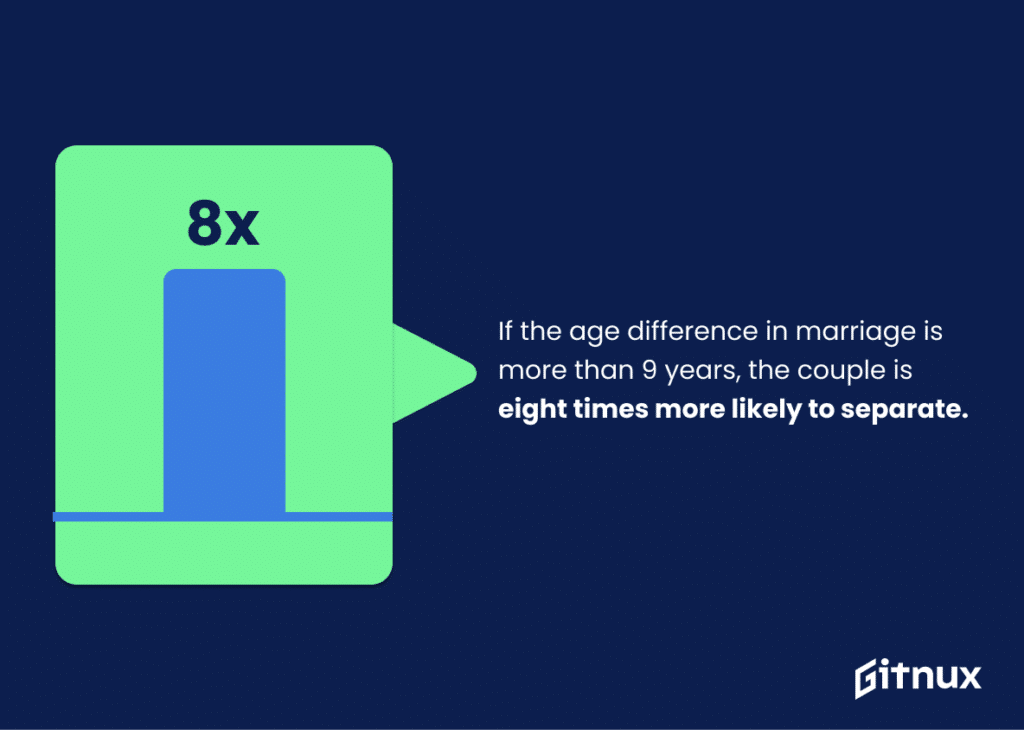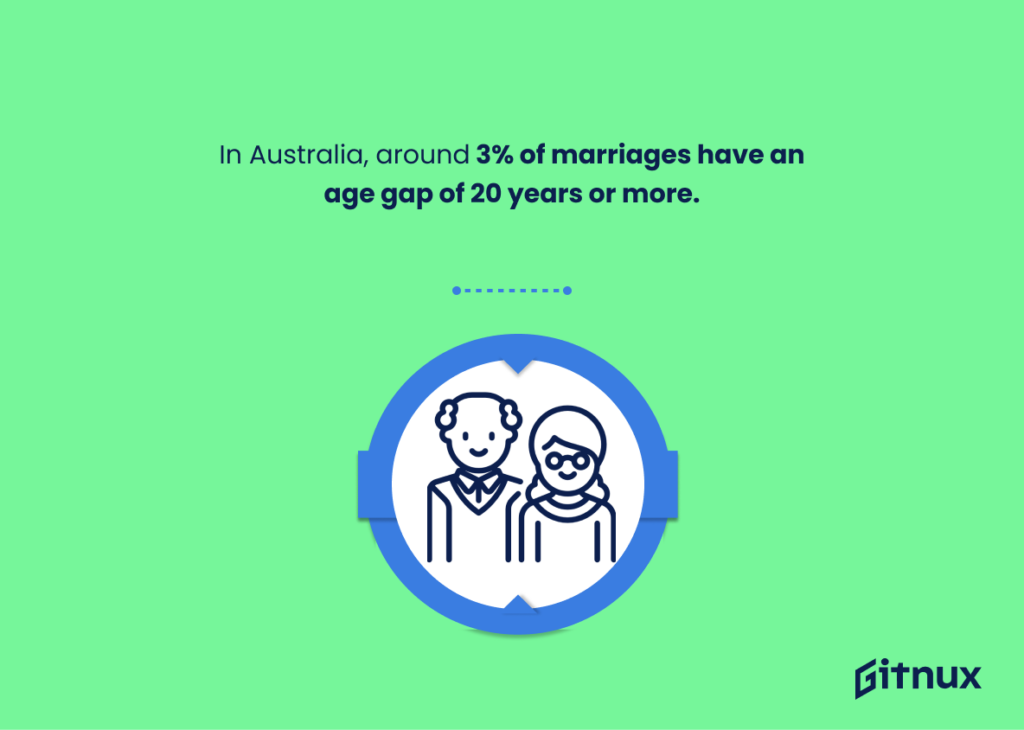When it comes to age gaps in marriage, love may be blind to birthdays, but relationships with substantial age differences face unique challenges. As a clinical psychologist, I’ve seen firsthand how these couples must navigate complex dynamics, societal judgment, and differing stages of life. Let’s delve into the psychology behind age-gap relationships and explore strategies for making long term relationships work, whether it involves older men with younger women, older women with younger partners, or similarly aged couples.
The allure of large age gaps
What draws people to partners significantly older or younger? One factor may be the “May-December paradox”, where attributes like resources and wisdom in older partners and fertility and vitality in younger ones become more appealing.1 Evolutionary psychology suggests these preferences stem from innate drives to maximize reproductive success, particularly for men seeking younger women.2 As Conroy-Beam and Buss note in their review, “Age lies at the heart of two sets of variables crucial to mate value—fecundity and reproductive value in women, and status and resource earning potential in men.”3
However, attraction is multifaceted. Some seek the excitement and novelty of a different generation.4 Others find emotional fulfillment in a partner at a complementary stage of life, such as an established career versus early adulthood self-discovery.5 Relationships with age differences can offer opportunities for personal growth, fresh perspectives, and expanded social circles. As one study found,
“Age-hypogamous* intimate relationships are often presented as unlikely to last, and as being potentially dangerous for younger men and/or for women themselves. However, at the same time, many perceive women who date younger men as independent, confident, sexually liberated women.”9
*marrying someone considered to be of lower economic or social class or caste.
The appeal across the lifespan
Interestingly, the ideal age gap sought by men and women shifts as people move through different life stages themselves. Younger men, for example, are often attracted to slightly older women. “Teenage boys are most attracted to women who are slightly older than themselves and thus near their reproductive value peaks. This attraction is not reciprocated by teenage girls and the age preference reverses as soon as men are themselves older than the age at which female reproductive value peaks.”3
As men age, they tend to prefer increasingly younger women relative to their own age. “Except for men in their twenties. These younger men were willing to accept partners who were up to 5 years older than themselves, with a maximal age in the mid-to-late twenties. This age preference corresponds exactly to the age window in which female fecundity is at peak and when reproductive value is still relatively high.”3 Women, in contrast, tend to consistently prefer men who are somewhat older than themselves throughout the lifespan.
Confronting challenges and stigma
Despite potential benefits, marriages with large age gaps face hurdles. Mismatched timelines around having children and retirement can breed resentment if not addressed.6 One wants to retire while the other wants to ramp up their careers once the children are in college.
Differences in energy levels, pop culture references, and tech savviness may impede day-to-day compatibility, especially as the older partner ages.7

External pressures also loom large. Age-discrepant couples face heightened scrutiny and stigma, particularly when the woman is older.8 Friends and family may express disapproval and concern about ulterior motives.9 Stereotypes of “gold diggers,” “cougars,” and “dirty old men” can take a psychological toll and erode relationship satisfaction over time.10 As Alarie points out, “Rather than seeing them as women looking for true love, they are assumed to share Mrs. Robinson’s desire to seduce or sexually prey upon young men, being stereotyped as ‘cougars.'”11
“While age-gap relationships are often the target of social criticism, women tend to bear the brunt of the judgment, while the men involved are often ignored,” Alarie notes. “Frequently women who pair with younger men are stereotyped as ‘cougars,’ suggesting they are more likely to be seen as sexual predators rather than individuals seeking true love. Likewise, younger women paired with older male partners are often stereotyped as ‘gold-diggers’ – seen as being in it for money rather than love.”11
While age-gap relationships are often the target of social criticism, women tend to bear the brunt of the judgment, while the men involved are often ignored,”
Strategies for relationship success
So how can age-gap couples beat the odds? Open communication is critical. Honest discussions about expectations, deal-breakers, and future plans should happen early and often.9 Navigating potentially divergent goals requires patience, flexibility, and a teamwork approach, whether it’s an older man with a younger woman or the reverse.
It’s also crucial for partners with age differences to confront insecurities head-on. Anxiety about aging, attractiveness, and comparisons to peers can fuel jealousy and conflict if left unspoken, especially for the older partner.10 Couples must work to appreciate each other’s intrinsic worth beyond surface attributes.
Furthermore, presenting a united front is key. Agreeing on boundaries with friends and family and sticking up for the relationship can deter external interference.11 Building a shared social network and hobbies also strengthens the bond and sense of unity, even with a significant age gap.
Ultimately, the glue for any lasting marriage is shared values.13 Connecting through mutual principles, life philosophies, and long-term visions is the foundation upon which to build a future, regardless of the years older one partner may be.

Overcoming judgment together
The harsh social judgment of age-gap relationships does not go unnoticed by the partners themselves. “Age-gap couples (defined as partners separated in age by more than 10 years) perceive substantially more social disapproval regarding their relationship than do couples with only a minimal or no age gap. In fact, in one study, age-discrepant couples reported experiencing significantly more social disapproval than individuals involved in gay or interracial relationships.”8
Feeling stigmatized or marginalized as a couple can eat away at relationship commitment and stability over time. “In a cross-sectional study that included a respectably sized sub-sample of age-gap partners, greater levels of perceived marginalization were associated with lower levels of relational commitment,” Lehmiller and Agnew report. “Perceived marginalization significantly predicted breakup status assessed approximately seven months later. The nature of this effect was such that those individuals who perceived more social disapproval at Time 1 were more likely to have broken up at Time 2.”8 In other words, the more disapproval you feel, the more likely you are to have the relationship end.
Ultimately, the glue for any lasting marriage is shared values.15 Connecting through mutual principles, life philosophies, and long-term visions is the foundation upon which to build a future, regardless of the years older one partner may be. As Cowan notes, “Although men and women typically report a preference for and openness to age gaps in their own relationships, they typically disapprove of age gaps in others’ romantic involvements.”16
Summary
Age differences in relationships are increasingly common and come with unique joys and challenges. By understanding the psychology behind the average age gaps men and women seek, confronting obstacles as a team, and leading with shared values, love can transcend the barriers of time. Age may shape our experiences, but it need not define the limits of our hearts in long term, committed marriages.
Footnotes:
- Conroy-Beam, D., & Buss, D. M. (2019). Why Is age so important in human mating? Evolved age preferences and their influences on multiple mating behaviors. Evolutionary Behavioral Sciences, 13(2), 127–157.
- Ibid.
- Ibid.
- Liang, J. J., & Tan, K. K. (2022). Interpersonal attraction in May-December marriages: Exploring the perspectives of couples with large age differences in Singapore. Journal of Social and Personal Relationships, 39(1), 223-246.
- Gabriela, M., Suciu, G., & Cristiana, P. (2019). Choosing our mates–A modern spin on evolutionary psychology. Anthropology Series, 51-60.
- Lehmiller, J., & Agnew, C. (2011). May-December paradoxes: An exploration of age-gap relationships in western society. https://docs.lib.purdue.edu/cgi/viewcontent.cgi?article=1024&context=psychpubs
- Cowan, G. (1984). The double standard in age-discrepant relationships. Sex Roles, 11(1), 17-23.
- Lehmiller, J. J., & Agnew, C. R. (2011). May–December paradoxes: An exploration of age-gap relationships in Western society.
- Alarie, M. (2019). “They’re the ones chasing the cougar”: Relationship formation in the context of age-hypogamous intimate relationships. Gender & Society, 33(3), 463-485.
- Banks, C. A., & Arnold, P. (2021). “Older women are just too set in their ways”: Perceptions of older women who date significantly younger men. Journal of Family Issues, 0192513X211010340.
- Alarie, 2019.
- Schwartz, C. R., & Graf, N. L. (2009). Assortative matching among same-sex and different-sex couples in the United States, 1990–2000. Demographic Research, 21, 843.
- Duncan, E. M., & Worswick, C. (2017). Insecurities in relationships: Judgments about other people’s relationships and anxious responses to relationship threats.
- Jensen, J. F., & Rauer, A. J. (2014). Turning inward versus outward: Relationship work in young adults and romantic functioning. Personal Relationships, 21(3), 451-467.
- Lampis, J., De Simone, S., & Belous, C. K. (2018). Investigating the relationship between couples’ shared values and relationship satisfaction. Journal of Family Studies, 1-10.
- Cowan, 1984.


